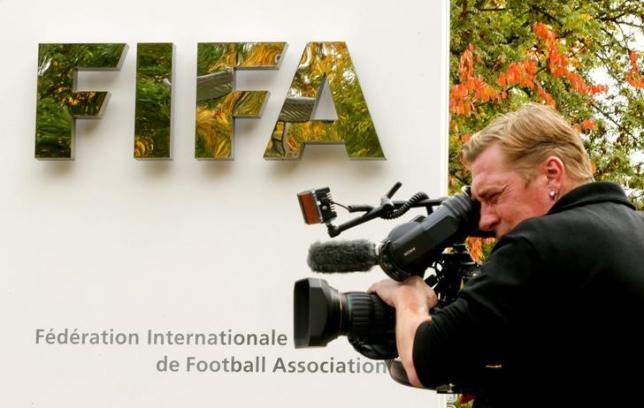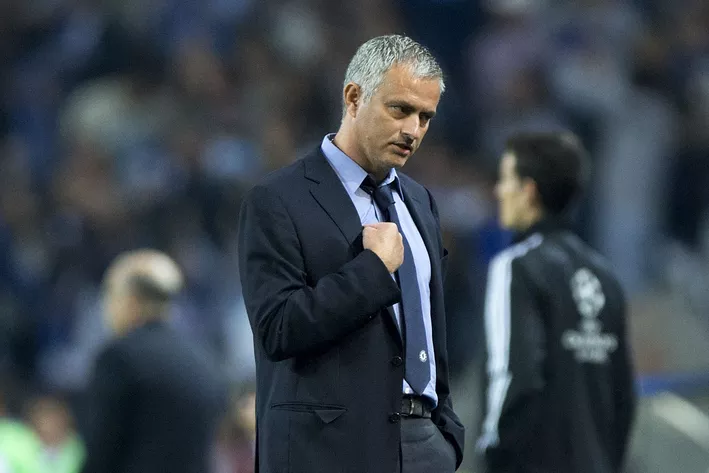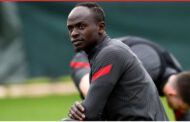World soccer chief Sepp Blatter and European boss Michel Platini were suspended on Thursday, engulfed by a deepening corruption scandal as their sport faces criminal investigations in Switzerland and the United States.
Blatter, the Swiss who has been president of world governing body FIFA since 1998, was already due to stand down after an election to replace him in February.
Platini, head of European body UEFA, was a frontrunner to replace him. His shrinking election hopes now depend on whether he can overturn the 90-day ban imposed by FIFA’s Ethics Committee.
Despite their denials of wrongdoing, both men have gradually been submerged by the scandal that has rocked the world’s most popular sport, beginning with dawn raids and a series of arrests at a Swiss luxury hotel in May.
“During this time, the above individuals are banned from all football activities on a national and international level,” the ethics committee said.
FIFA said in a statement: “Joseph S. Blatter, for the duration of the 90-day ban, is not allowed to represent FIFA in any capacity, act on the organisation’s behalf, or communicate to media or other stakeholders as a FIFA representative.”
It said his acting replacement was Issa Hayatou of Cameroon, the head of the Confederation of African Football (CAF) and FIFA’s most senior vice president.
In 2011, Hayatou, 69, was reprimanded by the International Olympics Committee’s ethics commission after he confirmed to them that he was paid by FIFA’s former marketing agency International Sport and Leisure in 1995.
The IOC said such an action constituted a conflict of interest. Hayatou denied any personal gain or wrongdoing.
In a statement on Thursday, the Cameroonian said he would not be a candidate for FIFA president in February and had taken the role on “only on an interim basis”.
The soccer federation of Germany, winner of last year’s World Cup, urged Blatter to resign and called for an emergency meeting of FIFA’s executive committee.
“The future can only be constructed without the current president, without Sepp Blatter,” German soccer chief Wolfgang Niersbach said. “That would be a sign of a new start and would be a mark for everyone that cleanliness was returning to football.”
JORDANIAN RIVAL
If Platini is not able to overturn his ban and join the election race, it would leave Prince Ali Bin Al Hussein of Jordan as the clear favourite, unless other candidates now emerge to take advantage of the Frenchman’s troubles.
South African Tokyo Sexwale, who was imprisoned with Nelson Mandela during the apartheid era and later became a politician and businessman, has said he is considering running.
Last week two sources told Reuters that Bahraini Sheikh Salman Bin Ebrahim Al Khalifa, president of the Asian Football Confederation, would consider standing if Platini was ruled out.
The president of the International Olympic Committee, Thomas Bach, said FIFA should consider an external candidate to succeed Blatter.
“They must do two things immediately: they must accelerate and deepen the reform process in order to comply with accountability, transparency and all the principles of good governance,” he said in his strongest statement yet on the crisis.
“They should also be open for a credible external presidential candidate of high integrity, to accomplish the necessary reforms and bring back stability and credibility to FIFA,” he added.
In further disciplinary moves, FIFA also handed out a 90-day suspension to Secretary General Jerome Valcke, who had already been sent on leave after being accused of being part of a scheme to sell 2014 World Cup tickets at a marked-up price. He denies any wrongdoing.
South Korea’s former FIFA Vice-President Chung Mong-joon was banned from the game for six years, a decision which will almost certainly end his already slim electoral hopes.
Swiss and U.S. authorities are both investigating corruption in world soccer, in long-running probes that have so far led to the indictment of 14 soccer officials and sports marketing executives. Among other things, they are examining the awarding of the 2018 and 2022 World Cups to Russia and Qatar respectively.
All those banned on Thursday can turn to FIFA’s Appeals Committee to try to overturn the bans, but would remain suspended throughout any appeals process.
BLATTER ‘DISAPPOINTED’
Blatter’s lawyers said he was disappointed he had been suspended without having the chance to be heard. They added he was looking forward to presenting evidence that would prove he did not engage in any misconduct.
Platini, a former France midfield star, said he submitted his nomination papers for the election to succeed Blatter before he was suspended. Shortly before his ban was announced, he indicated he intended to fight against the ruling.
“I will stop at nothing to ensure that the truth is known,” Platini said in a statement. “Nobody should be in any doubt as to my determination to achieve that objective.”
“In the meantime, a dispassionate, independent and impartial judicial body needs to shine a light on the events that led the FIFA Ethics Committee to open these investigatory proceedings,” added the Frenchman.
A spokesman for Platini was unable to comment on whether he intended to appeal.
The statement from the Ethics Committee did not give out details of any offence committed by Blatter and Platini.
While it is not allowed to discuss any probes, the investigation is almost certainly looking into a 2 million Swiss francs ($2.06 million) payment from FIFA to Platini in 2011, nine years after he completed a spell working for Blatter as an adviser.
The Swiss Attorney General said on Sept. 25 it had opened a criminal investigation into Blatter concerning that matter and a Caribbean television rights deal. Platini is regarded as somewhere “between a witness and an accused person” in the payment case.
Blatter has worked for FIFA for 40 years, starting as a technical director before becoming secretary general under former president Joao Havelange in 1981.
The 79-year-old Swiss told a German magazine this week that the Swiss criminal investigation against him was “not correct”.














